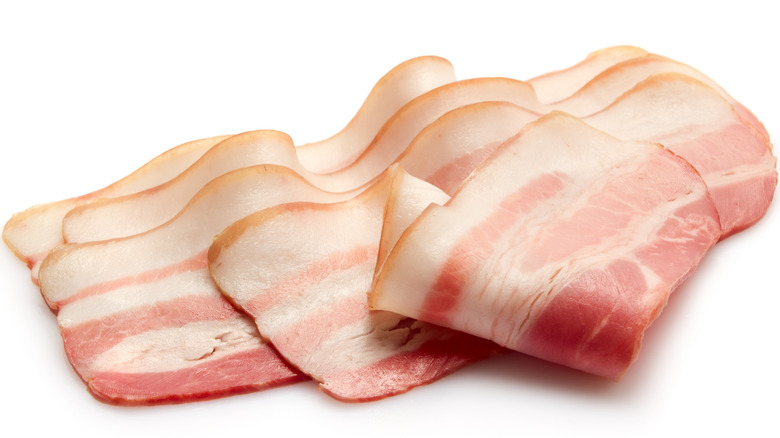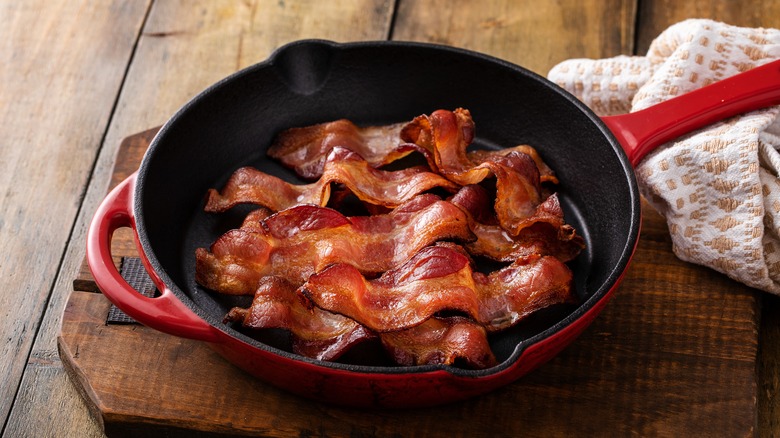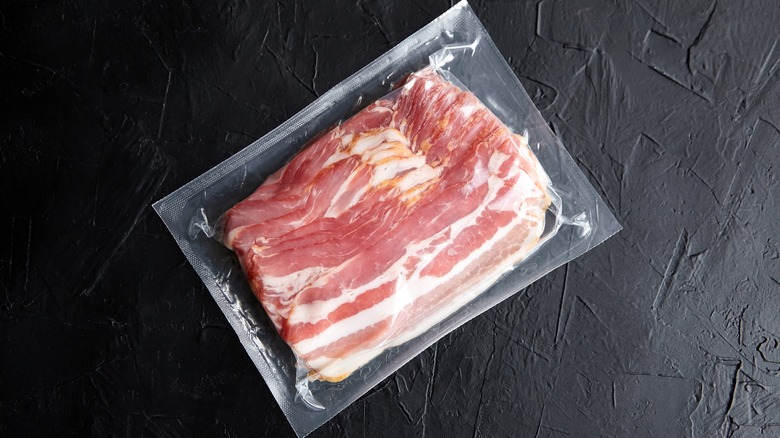Is It Safe To Eat Undercooked Floppy Bacon?
Bacon has taken over the news by storm — but not for the reasons you might think. According to an article by the American Journal of Case Reports published on March 7, 2024, an unidentified 52-year-old man contracted a tapeworm brain infection due to eating this type of pork undercooked. This rare affliction was covered by dozens of outlets, big and small, prompting many people to wonder whether they should ever eat undercooked bacon. Unfortunately for floppy lardon lovers, most health officials agree that it's not safe.
According to the U.S. Department of Agriculture, consuming undercooked pork products can expose people to a wide variety of pathogens, including foodborne bacteria like salmonella and Staphylococcus aureus. Worst case scenario? You could easily get infected with parasites like tapeworms or trichinosis, which cause a variety of painful symptoms such as intestinal blockage, nausea, and even death in some cases.
Even bacon that appears burnt can be undercooked in the middle, so make sure that your gammon reaches at least 145 degrees Fahrenheit to ensure that all pathogens in the meat get neutralized. Since bacon is typically not thick, a good indicator of doneness is to make sure everything comes out crispy instead of floppy.
Tips for thoroughly cooking bacon without burning it
To ensure that your bacon gets thoroughly cooked without burning, let it rest at room temperature for approximately 15 minutes before you cook. Cold bacon fat does not render as fast as the meat surrounding it takes to crisp up. Depending on when you decide to take your meat out of the pan, this could cause you to either have charred or gummy sections that will not be delicious for anyone.
Just a few minutes on your kitchen counter will let your bacon warm up thoroughly, allowing it to cook more evenly in the oven or stovetop. However, don't forget about your meat and have it sit at room temperature for over two hours, as harmful bacteria could spread through your food if left out for too long (per the USDA).
You should also never use a hot pan to cook bacon, as this can make the meat cook faster than the fat. Instead, let your meat and skillet rise to temperature together. This will give the fat more time to render, leaving you with delicious bacon that will not taste chewy or make you sick.
Ways to get soft bacon without undercooking it
If you're still set on eating soft bacon but don't want to risk a bacterial or parasitic infection, try to cook it sous vide. This will result in extremely tender, melt-in-your-mouth strips that are safe to eat, and you can still crisp them up on a skillet if you want a bit of crunch on their exterior. For best results, you'll want to sous vide thick-cut bacon, as it will allow you to fry everything up in a pan or oven without compromising its soft interior.
Another upside of this method is that you can cook an entire pack overnight and get some deliciously juicy strips in the morning. When tucked away in an airtight container, cooked bacon should last in the fridge for up to five days — and in the freezer for about a month.
Boiling will also do the trick in case you don't have a sous vide machine, but just remember to pat down your bacon with a paper towel if you're going to crisp it up in a skillet. Any surface moisture will cause the rendered fat in your bacon to splatter, so avoid this issue by drying it a bit beforehand.



